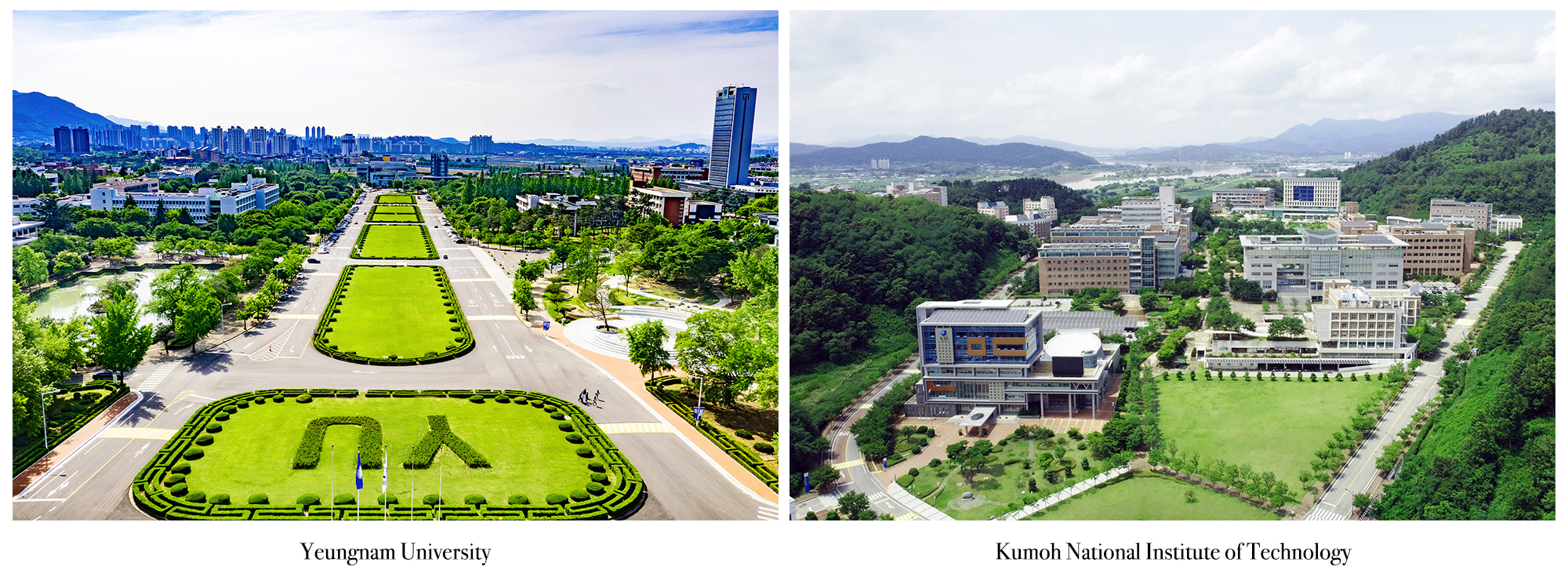YU and Kumoh National Institute of Technology Selected as Prospective Designated Universities for Glocal University 30 N
No.10430563- Writer PR team
- Date : 2024.04.24 10:11
- Publication Date : 2024.04.16
- Views : 5420
Ministry of Education Announces Prospective Designated Universities for Glocal University 30 on the 16th
Leading Regional Innovation through Collaboration between Public and Private Universities in Gyeongbuk Province
Specialization in SW (YU) and Semiconductor (Kumoh National Institute of Technology) Fields, Creating a Global Youth Village
[April 16, 2024]

YU (President CHOI Oe-chool) and Kumoh National Institute of Technology (President KWAK Ho-sang) were selected as prospective designated universities. YU and Kumoh National Institute of Technology are committed to actively collaborating to prepare for the official designation.
On the 16th, the Ministry of Education announced the results of the 2024 Glocal University 30 prospective designation, with the joint model of YU and Kumoh National Institute of Technology being recognized as a crucial gateway for project selection. As the only prospective designated university among the joint models of public and private universities, their selection holds significant meaning.
YU and Kumoh National Institute of Technology, through their collaboration, have been selected as prospective designated universities based on their innovative project plan for the Glocal University 30 Project, which includes fostering semiconductor and software talent, promoting local advanced industries, supporting research facilities and startups, and creating a global youth village. This selection accelerates the formulation of implementation plans for their official designation.

<On the 15th of last month, YU and Kumoh National Institute of Technology signed a business agreement to promote the Glocal University 30 project>.
(From the sixth person from the left: President CHOI Oe-chool of YU, President KWAK Ho-sang of Kumoh National Institute of Technology)
On the 15th of last month, the two universities signed a business agreement to promote the Glocal University 30 project and agreed to ▲ establish a system to foster local strategic industries ▲ develop an advanced education platform based on AI ▲ operate research and education programs for industry-academia cooperation in high-tech industries ▲ establish and strengthen cooperation networks to create youth jobs ▲ and develop and operate local and global contribution projects. With the selection of the prospective designated universities, the two universities will initiate discussions on regional innovation strategies within this month.
President KWAK Ho-sang of Kumoh National Institute of Technology stated, "Our innovation plan is not merely a passive collaboration aimed at project selection, but a shared effort between the two universities to address regional extinction issues and advance globally. It is a collaboration that breaks down the boundaries between public and private universities, sharing and systematizing what both universities have long prepared and pursued together." He added, "I will do my best to be selected as a final candidate for Glocal University 30, to open new horizons for regional industries, and to create a globally recognized university model where young people gather and spread their wings."
President CHOI Oe-chool of YU stated, "The selection of our university as a prospective designated university is a recognition of the innovative plan based on collaboration between YU and Kumoh National Institute of Technology, which aligns with the purpose of the Glocal University project. All members of both universities will unite their efforts to formulate concrete implementation plans based on the contents of the Glocal University innovation plan. We are committed to concentrating all the university's capabilities to lead regional innovation and enhance the capabilities of youth by cooperating with local governments and related universities, aiming to be finally selected as a model for regional innovation in this project."